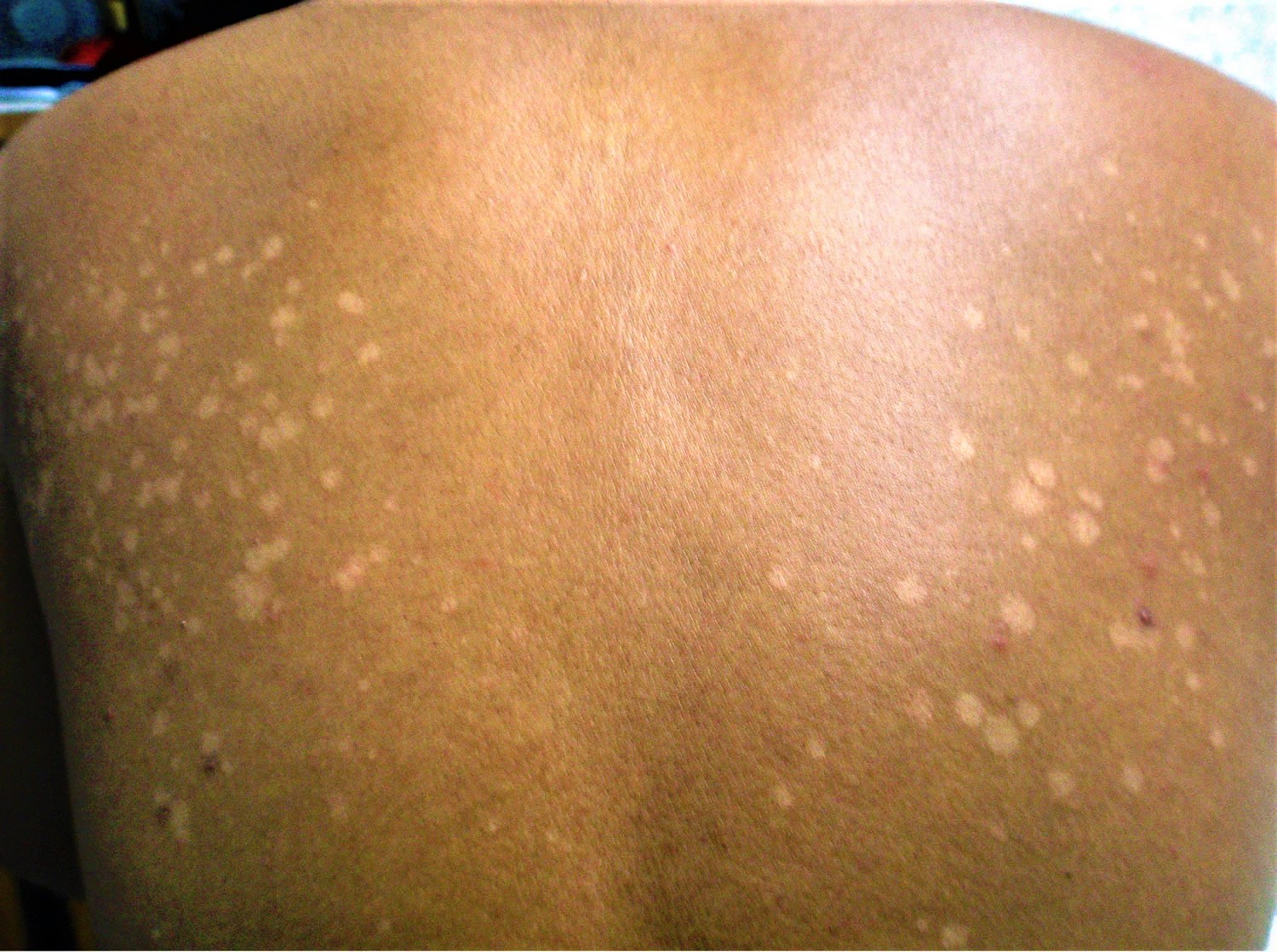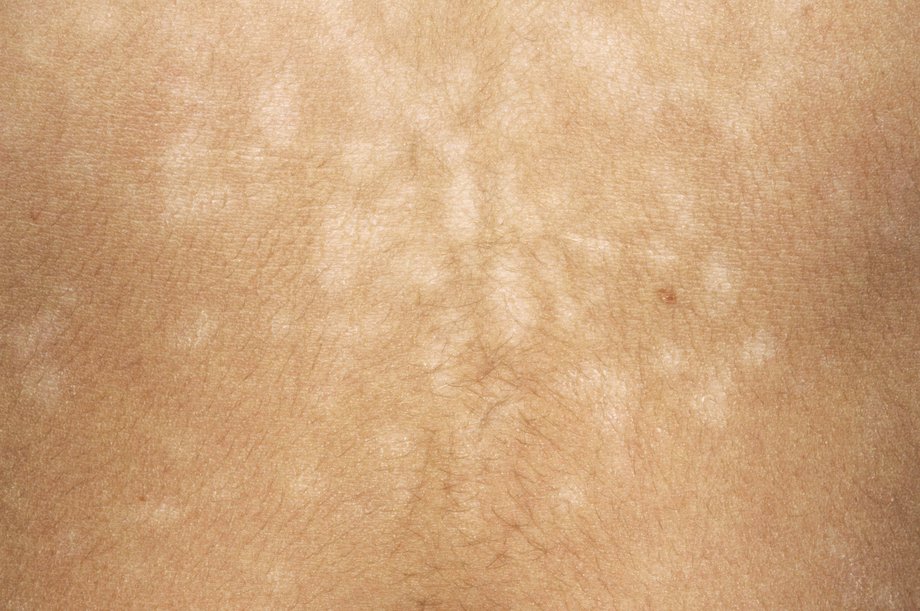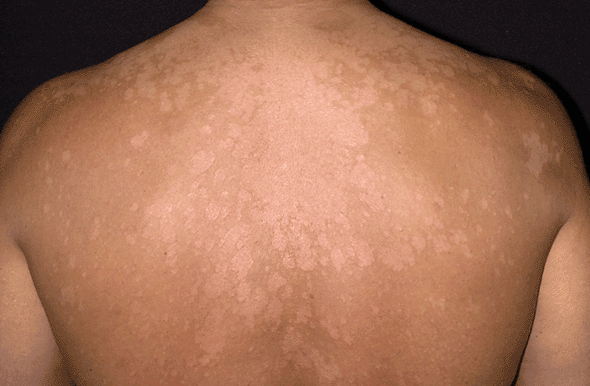is pityriasis versicolor contagious Tinea versicolor
Pityriasis versicolor, also known as tinea versicolor, is a common fungal infection that affects the skin. It is caused by the yeast-like fungus Malassezia, which is normally present on the skin without causing any harm. However, under certain conditions, such as warm and humid weather, hormonal changes, or a weakened immune system, the fungus can grow and multiply, leading to the development of pityriasis versicolor.
What Does Pityriasis Versicolor Look Like?
If you suspect you might have pityriasis versicolor, it’s important to be able to recognize the symptoms. The infection typically appears as small, scaly patches on the skin that may be white, pink, or brown in color. These patches are usually more noticeable on areas of the body that are frequently covered, such as the chest, back, or shoulders.
 While the patches may not cause any physical discomfort, they can be cosmetically bothersome. Many people with pityriasis versicolor feel self-conscious about the appearance of their skin, especially when the patches are more visible in the summer months.
While the patches may not cause any physical discomfort, they can be cosmetically bothersome. Many people with pityriasis versicolor feel self-conscious about the appearance of their skin, especially when the patches are more visible in the summer months.
Treatment Options for Pityriasis Versicolor
If you suspect you have pityriasis versicolor, it is recommended to consult with a dermatologist for a proper diagnosis and treatment plan. The treatment for this condition usually involves the use of antifungal medications, such as creams, lotions, or shampoos, that can be applied directly to the affected areas.
 These medications work by eliminating the fungus and preventing its further growth. Depending on the severity of the infection, treatment can take several weeks or even months. It’s important to follow the prescribed treatment regimen consistently to ensure the best possible outcome.
These medications work by eliminating the fungus and preventing its further growth. Depending on the severity of the infection, treatment can take several weeks or even months. It’s important to follow the prescribed treatment regimen consistently to ensure the best possible outcome.
Preventing Pityriasis Versicolor
While pityriasis versicolor is not contagious, there are steps you can take to reduce the risk of developing this fungal infection. Maintaining good hygiene practices, such as regularly washing your body with soap and water, can help keep the fungal growth in check.
Avoiding excessive sweating and wearing loose, breathable clothing can also help prevent the conditions that allow the fungus to thrive. Additionally, if you live in a humid climate, it may be beneficial to use antifungal powders or sprays on areas prone to sweating, such as your chest or back.
In conclusion, pityriasis versicolor is a common fungal infection that can be easily treated with appropriate antifungal medications. If you suspect you have pityriasis versicolor, it is best to consult with a dermatologist to receive an accurate diagnosis and appropriate treatment. By following the prescribed treatment plan and taking preventive measures, you can effectively manage this condition and maintain healthy skin.
If you are looking for Pityriasis versicolor: what is it? Symptoms and Treatment – Mediologiest you’ve came to the right web. We have 5 Pictures about Pityriasis versicolor: what is it? Symptoms and Treatment – Mediologiest like Pityriasis versicolor: what is it? Symptoms and Treatment – Mediologiest, Pityriasis Rosea: Stages, Causes & Treatment - Health Blog and also Pityriasis versicolor - Stock Image - C033/2540 - Science Photo Library. Read more:
Pityriasis Versicolor: What Is It? Symptoms And Treatment – Mediologiest
 www.mediologiest.comversicolor pityriasis tinea nhs marazzi
www.mediologiest.comversicolor pityriasis tinea nhs marazzi
Pityriasis Versicolor - Stock Image - C033/2540 - Science Photo Library
 www.sciencephoto.compityriasis versicolor
www.sciencephoto.compityriasis versicolor
Medical SKIN Care: TINEA VERSICOLOR ( SKIN FUNGUS)
 nikshazmedic.blogspot.comversicolor tinea skin fungus
nikshazmedic.blogspot.comversicolor tinea skin fungus
Pityriasis Rosea: Stages, Causes & Treatment - Health Blog
 fnfdoc.comrosea pityriasis stages causes diseases
fnfdoc.comrosea pityriasis stages causes diseases
Tinea Versicolor - Causes, Signs, Symptoms, Treatment & Remedies
 healthjade.nettinea versicolor treatment symptoms causes does look twitter figure healthjade
healthjade.nettinea versicolor treatment symptoms causes does look twitter figure healthjade
Pityriasis versicolor. Tinea versicolor treatment symptoms causes does look twitter figure healthjade. Versicolor pityriasis tinea nhs marazzi